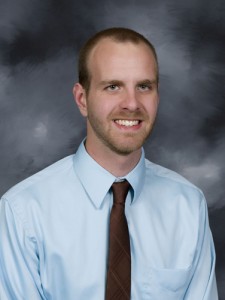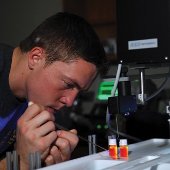The Michigan Academy for Green Mobility Alliance (MAGMA) has approved three graduate certificate programs in hybrid electric vehicles and advanced battery systems. Michigan Tech’s hybrid vehicle engineering certificate, which takes 15 graduate credits to earn has been approved for up to $1,800 in training grants.
The funding is for currently employed engineers in Michigan. Its goal is to ensure that the automotive industry has workers with the skills it requires to grow and prosper in the emerging green economy. Funding is also available for retraining for displaced engineers through Michigan Works! and the State Energy Sector Partnership program (SESP).
Tech’s hybrid vehicle engineering certificate was developed with a $3 million grant from the Department of Energy Transportation Electrification and includes a mobile lab. This is an interdisciplinary program involving faculty and staff from mechanical engineering-engineering mechanics, electrical and computer engineering, materials science and engineering and chemical engineering. It is headed by Associate Dean Carl Anderson (COE) and Associate Professor Jeff Naber (ME-EM).
Published in Tech Today.

